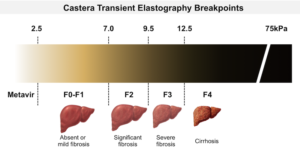
Understanding Hyaluronic Acid’s Impact on Liver Health
In recent years, hyaluronic acid (HA) has captured significant interest for its myriad of health and beauty advantages. This substance, which naturally exists within the human body, is essential for preserving moisture in the skin, ensuring smooth movement in joints, and promoting the well-being of bodily tissues. Although hyaluronic acid is largely deemed safe for the majority when applied correctly, there have been conversations about its possible adverse impacts on liver health.
Understanding HA: A Comprehensive Overview
Hyaluronic acid, often hailed as a skincare superhero and a crucial component in medical treatments, warrants a closer look into its nature and functions within the body. It’s more than just a trendy ingredient; it plays vital roles in maintaining healthy connective tissues throughout various bodily systems.
What is It?
Hyaluronic acid, a polysaccharide categorized as a glycosaminoglycan, serves as a ubiquitous presence within the body’s connective tissues. Here’s a breakdown of its key characteristics:
- Moisture Retention: One of its primary functions lies in its exceptional ability to retain moisture. This attribute ensures tissues remain adequately lubricated and hydrated, contributing to their overall health and functionality;
- Connective Tissue Support: It acts as a supportive framework within connective tissues, offering structural integrity and resilience;
- Natural Distribution: Found abundantly in various bodily sites, including the skin, eyes, and joints, hyaluronic acid is a fundamental component in maintaining their health and function.
Applications of Hyaluronic Acid
Beyond its inherent presence within the body, hyaluronic acid finds extensive use in medical and cosmetic domains, owing to its remarkable properties:
- Skincare Marvel: Renowned for its moisturizing prowess, hyaluronic acid is a star ingredient in numerous skincare formulations. Its ability to attract and retain moisture makes it an invaluable asset in combating dryness, fine lines, and wrinkles;
- Medical Utilization: In medical settings, hyaluronic acid is employed in diverse applications. Notably, it is utilized in joint injections to mitigate discomfort associated with conditions like osteoarthritis. These injections provide targeted relief by replenishing hyaluronic acid levels in affected joints, restoring cushioning and mobility;
- Cosmetic Advancements: The cosmetic industry harnesses the hydrating potential of hyaluronic acid in various procedures, such as dermal fillers. By injecting hyaluronic acid-based fillers into specific areas, practitioners can replenish volume, smooth wrinkles, and enhance facial contours, promoting a youthful appearance.
Exploring Liver Side Effects of Hyaluronic Acid:
Hyaluronic acid, widely known for its skincare and joint health benefits, is generally regarded as safe. However, delving deeper into its effects reveals potential implications for liver health. Understanding these aspects is crucial for informed decision-making regarding hyaluronic acid usage.
Liver Enzyme Elevation:
One noteworthy concern is the impact of hyaluronic acid on liver enzymes. Elevated levels of enzymes like alanine aminotransferase (ALT) and aspartate aminotransferase (AST) may indicate liver inflammation or damage. While mild elevations may go unnoticed, continuous high levels can signal underlying issues. Here’s what to know:
- Monitoring liver enzyme levels: Regular liver function tests can help track enzyme levels, allowing for early detection of any abnormalities;
- Lifestyle adjustments: Adopting a liver-friendly lifestyle, including maintaining a balanced diet, staying hydrated, and limiting alcohol consumption, can support liver health.
Liver Toxicity:
Excessive hyaluronic acid intake, whether through supplements or injections, poses risks of liver toxicity. Recognizing the symptoms, ranging from jaundice to abdominal pain, is crucial for prompt intervention. Key considerations include:
- Recognizing symptoms: Understanding the signs of liver toxicity, such as yellowing of the skin (jaundice) or persistent fatigue, is vital for timely medical attention;
- Dosage regulation: Adhering to recommended dosage guidelines and avoiding overconsumption minimizes the risk of liver-related complications.
Drug Interactions:
Another facet to consider is the potential interaction between hyaluronic acid and medications metabolized by the liver. This interaction can alter drug efficacy or increase the likelihood of adverse reactions. Here’s what users should keep in mind:
- Consultation with healthcare providers: Prior consultation with a healthcare professional is essential, especially for individuals on liver-metabolized medications. This ensures a thorough understanding of potential interactions and mitigates associated risks;
- Monitoring for adverse effects: Vigilantly monitoring for any adverse reactions while using hyaluronic acid alongside other medications enables timely intervention if needed.
Precautions and Considerations for Hyaluronic Acid Usage:
Hyaluronic acid, renowned for its skin-rejuvenating properties, holds promise for various health benefits. However, as with any supplement or treatment, it’s crucial to tread carefully to avoid potential risks. Here are key precautions and considerations to bear in mind when incorporating hyaluronic acid into your regimen:
Dosage Guidelines:
- Follow Professional Advice: Adhere strictly to the recommended dosage outlined by healthcare professionals or indicated on product labels. These guidelines are established based on factors like age, weight, and specific health conditions;
- Consultation: Prioritize a consultation with a healthcare provider before initiating hyaluronic acid supplementation, especially if you’re managing chronic health issues or taking other medications. This step ensures personalized guidance tailored to your individual needs;
- Start Low, Go Slow: Begin with a lower dosage initially, gradually increasing it as tolerated. This approach allows your body to adapt and minimizes the risk of adverse effects.
Quality Assurance:
- Research Reputable Brands: Invest in hyaluronic acid supplements or injections from reputable brands known for their commitment to quality and safety standards. Look for certifications such as Good Manufacturing Practice (GMP) and third-party testing;
- Purity Matters: Prioritize products with high purity levels, free from contaminants or impurities that could compromise efficacy or trigger allergic reactions. Opt for formulations derived from reliable sources using advanced purification techniques;
- Read Reviews and Testimonials: Explore reviews and testimonials from verified users to gauge the effectiveness and reliability of different hyaluronic acid products. Valuable insights from real experiences can aid in informed decision-making.
Consultation with Healthcare Provider:
- Prioritize Consultation: Before initiating any hyaluronic acid supplementation or treatments, individuals with pre-existing liver conditions should schedule a thorough consultation with their healthcare provider. This step is essential for assessing the potential risks and benefits based on individual health profiles;
- Comprehensive Assessment: During the consultation, healthcare providers will conduct a comprehensive evaluation of the individual’s medical history, current liver health status, and any ongoing treatments. This information helps in determining the suitability of hyaluronic acid usage and devising a personalized plan;
- Customized Recommendations: Based on the assessment, healthcare providers can offer tailored recommendations regarding the use of hyaluronic acid, considering factors such as dosage, formulation, and potential interactions with existing medications.

Monitoring Liver Function:
- Regular Liver Function Tests: For individuals with pre-existing liver conditions who opt to use hyaluronic acid supplements or undergo injections, regular monitoring of liver function is crucial. This involves periodic assessments of liver enzyme levels and overall liver health indicators;
- Frequency of Monitoring: The frequency of liver function tests may vary depending on individual risk factors, the duration of hyaluronic acid usage, and any changes in health status. Healthcare providers will determine the appropriate intervals for monitoring based on personalized needs;
- Early Detection of Complications: Regular monitoring serves as a proactive measure for early detection of any potential liver complications associated with hyaluronic acid usage. Prompt identification of abnormalities allows for timely intervention and management strategies.
Who Should Avoid Hyaluronic Acid?
While hyaluronic acid is widely celebrated for its skin-rejuvenating properties, there are certain individuals who should exercise caution or avoid its use altogether. Here’s a comprehensive breakdown:
1. Individuals with a History of Cancer:
Cancer patients or those with a history of cancer should approach hyaluronic acid with caution. While research on this matter is ongoing, some studies suggest a potential link between hyaluronic acid and cancer progression. Therefore, it’s crucial for cancer survivors or patients to consult their healthcare provider before using hyaluronic acid supplements or skincare products.
Recommendation: Seek guidance from an oncologist or healthcare professional to assess the risks and benefits based on individual health status and medical history.
2. Individuals with Liver Problems:
Liver function plays a vital role in metabolizing substances like hyaluronic acid. Those with pre-existing liver conditions should avoid hyaluronic acid supplements unless explicitly advised by a medical professional.
Tips: Opt for alternative skincare ingredients or supplements that are safer for individuals with liver issues, such as vitamin E or niacinamide.
3. Pregnant or Breastfeeding Women:
Although hyaluronic acid is naturally found in the body and in some foods, its safety during pregnancy and breastfeeding is not entirely established. While topical hyaluronic acid products used in skincare routines are generally considered safe, ingesting hyaluronic acid supplements during pregnancy or while breastfeeding requires careful consideration.
Insight: Limited research is available on the effects of hyaluronic acid supplements on fetal development and infant health. Hence, pregnant or breastfeeding women should prioritize consulting with their healthcare provider before incorporating hyaluronic acid into their regimen.
Precaution: It’s advisable to err on the side of caution and opt for pregnancy-safe skincare alternatives or consult a healthcare provider for personalized advice.
Consultation with a Medical Professional:
Despite its natural presence in the body, introducing hyaluronic acid supplements or skincare products should involve medical supervision, especially for those with underlying health conditions or during sensitive life stages such as pregnancy.
Best Practices:
Schedule a consultation with a dermatologist or general practitioner to discuss the appropriateness of hyaluronic acid usage based on individual health factors.
Be transparent about any existing medical conditions, ongoing treatments, or medications to ensure comprehensive advice tailored to personal health needs.
Consider alternative skincare ingredients or supplements recommended by healthcare professionals if hyaluronic acid is deemed unsuitable due to medical reasons.
Conclusion
Hyaluronic acid is celebrated for its remarkable contributions to skin vitality and joint mobility. However, its possible implications on liver well-being warrant attention. Although the research on its influence on liver functionality remains inconclusive, prudence is advised, particularly with elevated dosages or among those with pre-existing liver issues. It is essential to seek advice from a medical expert prior to initiating any supplementation or therapy involving hyaluronic acid, to guarantee its secure application and to mitigate potential negative impacts on liver health.

